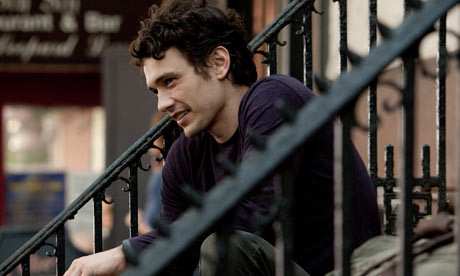
Looking at the list of submissions for the Guardian first book award, I didn't think it would be too hard to find a few excellent books that were missing. After all, the list is dominated by the bigger houses, and I've always thought it's the small presses who concentrate on the innovatively literary.
I was looking for fiction that pushed the boundaries in terms of language or form or political and moral insight, books that don't fit the conception of the 'market' but, with the oxygen of a prize win, have the power to capture readers' imaginations and indeed change the terms of the market in the way that innovative books have done in the past.
But it wasn't as easy as I expected. To my surprise, some small publishers have no fiction debuts this year. Of these, Seren and Parthian both assured me that in another year they would have – last year Parthian published several under their Bright Young Things initiative – though Seren editor Penny Thomas conceded that the recession was biting. When I asked Tania Hershman, editor of The Short Review, she said that she hadn't received a single UK story collection this year that was a debut. One small-press publisher sent me a book he happily acknowledged as a 'holiday read', leading me to wonder if some are now no more immune to market demands than any larger publisher.
I didn't have much time to uncover and investigate publishers not already on my radar – though, ironically, the new Manchester press that calls itself Hidden Gem seems to be rather good at publicity, and has published a literary debut – Emma Jane Unsworth's Hungry, The Stars and Everything – that has great popular potential. I was also sent books that turned out not to be debuts after all, indicating a haziness about the prize on the part of publishers. But the general feeling was one of resignation – that awards are no longer within the scope of small presses.
Half of the four books I found were from publishers who obviously haven't given up – other titles from Faber and Salt are already on the list. So why hadn't they submitted more? A major stumbling block, it turns out, was the entrance fee of £150 a book. This may not seem much, but it's a lot to a small publisher.
Salt's Jen Hamilton-Emery, publisher of AJ Ashworth's forthcoming collection of intriguing stories, said that she had three books she wanted to enter, but could afford only one. Even one fee was too much for Comma publisher Ra Page, who said he simply couldn't find the money to enter Zoe Lambert's startlingly different The War Tour, his "big title for the second half of the year". Sharon Blackie of Two Ravens Press, publisher of Frances Bingham's enticingly strange wartime novel, agreed. "We don't make a profit," she said, "and, because we publish literary/innovative fiction, sales of novels rarely support 'extras' like prize entry fees." Unaware that – unlike the prize itself – I was looking for fiction only, Seren poetry editor Amy Wack sent me three debuts, saying that she'd been unable to afford to enter even one. It's clear that poetry has been particularly affected by the existence of an entry fee.
All of which makes the publication of the submissions, and the search for other books which should be under consideration all the more important. So what's missing?
My choices
The War Tour by Zoe Lambert
Palo Alto by James Franco
The Principle of Camouflage by Frances Bingham
Somewhere Else, or Even Here by Andrea Ashworth

